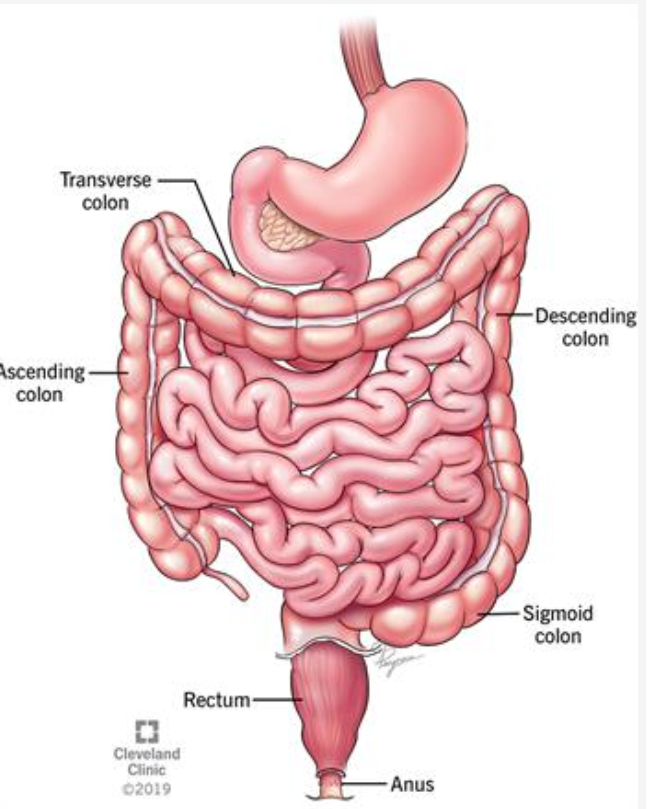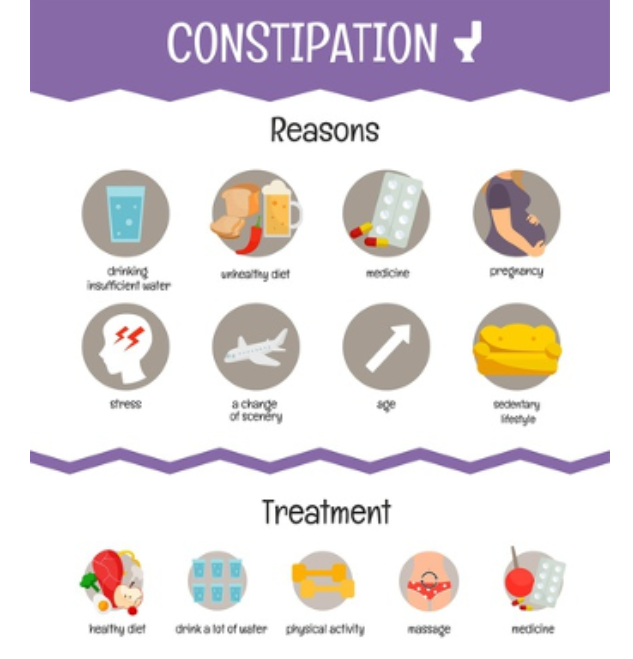What is constipation?
Constipation is seen as having fewer than three bowel movements a week. However, how often you “poop” varies widely from person to person. Some people have bowel movements several times a day "they must be very serious with food" while others have them only one to two times a week. Whatever your bowel movement pattern is, it’s unique and normal for you – as long as you don’t leave your pattern.
Regardless of your bowel pattern, one fact is certain: the longer you go before you “go,” the more difficult it becomes for stool/poop to pass. Other key features that usually define constipation include:
Your stools are dry and hard.
Your bowel movement is painful and stools are difficult to pass.
You have a feeling that you have not fully emptied your bowels.
How common is constipation?
Constipation is one of the most frequent gastrointestinal complaints even in the United States. At least 2.5 million people see their doctor each year due to constipation.
People of all ages can have an occasional bout of constipation. There are also certain people and situations that are more likely to lead to becoming more consistently constipated (“chronic constipation”). These include:
Older age. Older people tend to be less active, have a slower metabolism and less muscle contraction strength along their digestive tract than when they were younger.
Being a woman, especially while you are pregnant and after childbirth. Changes i
Can constipation cause internal damage or lead to other health problems?
There are a few complications that could happen if you don’t have soft, regular bowel movements. Some complications include:
Swollen, inflamed veins in your rectum (a condition called hemorrhoids).
Tears in the lining of your anus from hardened stool trying to pass through (called anal fissures).
An infection in pouches that sometimes form off the colon wall from stool that has become trapped and infected (a condition called diverticulitis)
A pile-up of too much stool/poop in the rectum and anus (a condition called fecal impaction).
Damage to your pelvic floor muscles from straining to move your bowels. These muscles help control your bladder. Too much straining for too long a period of time may cause urine to leak from the bladder (a condition called stress urinary inconcinence).
not having regular bowel movements might cause toxins to build up in my body and make you sick
What causes constipation?

There are many causes of constipation – lifestyle choices, medications, medical conditions, and pregnancy.
Common LIFESTYLE causes of constipation include:
• Eating foods low in fiber.
• Not drinking enough water (dehydration).
• Not getting enough exercise.
• Changes in your regular routine, such as traveling or eating or going to bed at different times.
• Eating large amounts of milk or cheese.
• Stress.
• Resisting the urge to have a bowel movement.
MEDICATIONS that can cause constipation include:
Strong pain medicines, like the narcotics containing codeine, oxycodone (Oxycontin) and hydromorphone (Dilaudid).
Nonsteroidal anti-inflammatory drugs, like ibuprofen (Advil, Motrin) and naproxen (Aleve).
Antidepressants, including the selective serotonin reuptake inhibitors (like fluoxetine [Prozac]) or tricyclic antidepressants (like amitriptyline [Elavil]).
Antacids containing calcium or aluminum, such as Tums.
Iron pills.
Allergy medications, such as antihistamines (like diphenhydramine [Benadryl]).
Certain blood pressure medicines, including calcium channel blockers (like verapamil [Calan SR], diltiazem [Cardizem] and nifedipine [Procardia]) and beta-blockers (like atenolol [Tenormin]).
Psychiatric medications, like clozapine (Clozaril) and olanzapine (Zyprexa).
Anticonvulsant/seizure medications, such as phenytoin and gabapentin.
Antinausea medications, like ondansetron (Zofran).
Many drugs can cause constipation. Ask your doctor or pharmacist if you have any questions or concerns.
MEDICAL and HEALTH conditions that can cause constipation include:
Endocrine problems, like underactive thyroid gland (hypothyroidism), diabetes, uremia, hypercalcemia.
Colorectal cancer.
Irritable bowel syndrome (IBS).
Diverticular disease.
Outlet dysfunction constipation. (A defect in the coordination of pelvic floor muscles. These muscles support the organs within the pelvis and lower abdomen. They are needed to help release stool.)
Neurologic disorders including spinal cord injury, multiple sclerosis, Parkinson’s disease, and stroke.
Lazy bowel syndrome. The colon contracts poorly and retains stool.
Intestinal obstruction.
Structural defects in the digestive tract (like fistula, colonic atresia, volvulus, intussusception, imperforate anus, or malrotation.)
Multiple organ diseases, such as amyloidosis, lupus, and scleroderma.
PREGNANCY
####Symptoms of constipation include:
• You have fewer than three bowel movements a week.
• Your stools are dry, hard and/or lumpy.
• Your stools are difficult or painful to pass.
• You have a stomach ache or cramps.
• You feel bloated and nauseous.
• You feel that you haven’t completely emptied your bowels after a movement.
